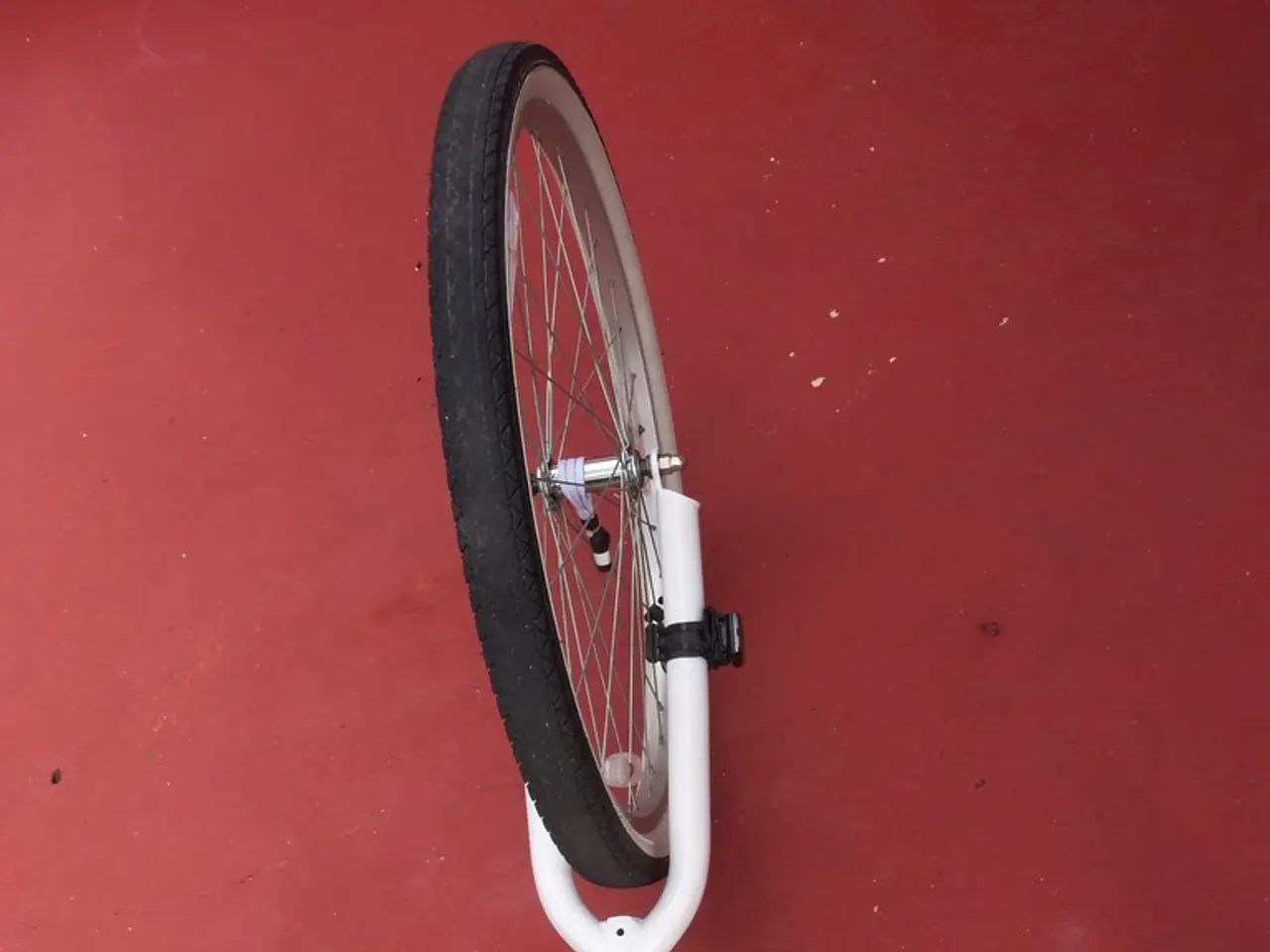Barrier Analysis for Cargo Bikes in Scotland: Pursuing a Domestic Delivery Transformation
In a bid to reduce emissions and promote a greener future, a recent study by Sustrans has shed light on the potential of cargo bikes and e-cargo bikes in Scotland [1]. Despite their environmental benefits, uptake remains slow due to various challenges facing both commercial and private users.
To overcome these obstacles, Scotland needs to take decisive action. Here are the key steps that could pave the way for a local logistics revolution:
- Affordable Cargo Bikes: Developing funding and subsidy schemes is crucial to make cargo bikes more accessible for businesses and individuals [1][4]. Subsidizing these vehicles in a meaningful way is considered necessary for substantial change in their use over other vehicles.
- Improved Cycling Infrastructure: Safer, dedicated bike lanes and better access on urban and rural routes are essential to boost user confidence and safety [1]. Improved storage options such as secure parking bays and bike hangers are also suggested for residential and commercial areas.
- Raising Awareness: Promoting the benefits and capabilities of cargo bikes among businesses, local authorities, and the public is key to driving cultural acceptance and demand [1]. Awareness campaigns could highlight their potential to re-imagine the urban freight sector and play a significant role in the journey towards net-zero.
- Supportive Policies: Incentives for zero-emission freight transport and integration of cargo bikes into urban logistics planning are necessary [1]. Policies should be designed to encourage the use of cargo bikes for deliveries, making them a viable alternative to cars and vans for small businesses and organizations.
- Accessibility: Facilitating sharing and rental schemes, especially in rural areas, could improve accessibility where ownership costs are prohibitive [4]. Creating knowledge hubs where businesses can exchange information about reliable insurers or mechanics could also help.
Insurance for cargo bikes as commercial vehicles was found to be difficult and costly due to the lack of choice in providers, resulting in high premiums. Simplifying grant applications for cargo bikes by expanding eligibility to newer businesses and making the process more accessible is proposed.
The research also found that finding mechanics capable of servicing cargo bikes adds another complication in maintaining an operational fleet of commercial vehicles. Proper training is required for operating cargo bikes, but it is hard to come by in all regions.
Despite these challenges, cargo bikes are gaining traction in urban and rural areas of Scotland, promising a cleaner, greener future for transport and local logistics. They offer the opportunity to re-imagine the urban freight sector and play a significant role in the journey towards net-zero.
References: [1] Sustrans (2021). Cargo Bikes in Scotland: Challenges and Solutions. Available at: www.sustrans.org.uk/cargobikes [4] Scottish Government (2020). Active Travel: Scotland's Cycling Action Plan for Wales. Available at: www.transport.gov.scot/activeravel
- The potential of cargo bikes and e-cargo bikes in reducing emissions and promoting a greener future has been highlighted in a study by Sustrans [1].
- The uptake of cargo bikes in Scotland remains slow due to various challenges faced by commercial and private users.
- Developing funding and subsidy schemes is crucial to make cargo bikes more accessible for businesses and individuals [1][4].
- Safer, dedicated bike lanes and improved access on urban and rural routes are essential to boost user confidence and safety [1].
- Promoting the benefits and capabilities of cargo bikes among businesses, local authorities, and the public is key to driving cultural acceptance and demand [1].
- Incentives for zero-emission freight transport and integration of cargo bikes into urban logistics planning are necessary [1].
- Policies should be designed to encourage the use of cargo bikes for deliveries, making them a viable alternative to cars and vans for small businesses and organizations.
- Facilitating sharing and rental schemes, especially in rural areas, could improve accessibility where ownership costs are prohibitive [4].
- Insurance for cargo bikes as commercial vehicles is difficult and costly due to the lack of choice in providers [1].
- Simplifying grant applications for cargo bikes by expanding eligibility to newer businesses and making the process more accessible is proposed.
- Finding mechanics capable of servicing cargo bikes adds another complication in maintaining an operational fleet of commercial vehicles.
- Proper training is required for operating cargo bikes, but it is hard to come by in all regions.
- Cargo bikes are gaining traction in urban and rural areas of Scotland, promising a cleaner, greener future for transport and local logistics.
- The transport and logistics industry, environmental-science, finance, entrepreneurship, and leadership all play a role in overcoming the obstacles to the widespread adoption of cargo bikes.
- A diverse and inclusive approach, emphasizing on education-and-self-development, career-development, and skills-training, can help foster a conducive environment for the adoption of sustainable living practices, including the use of cargo bikes.
- In the bigger picture, the encouraging use of renewable-energy sources, data-and-cloud-computing, and general-news about green initiatives can contribute to a shared global commitment towards net-zero and a more sustainable lifestyle, positively impacting personal-finance, housing-market, personal-growth, real-estate, and even sports industries such as football and European leagues.




